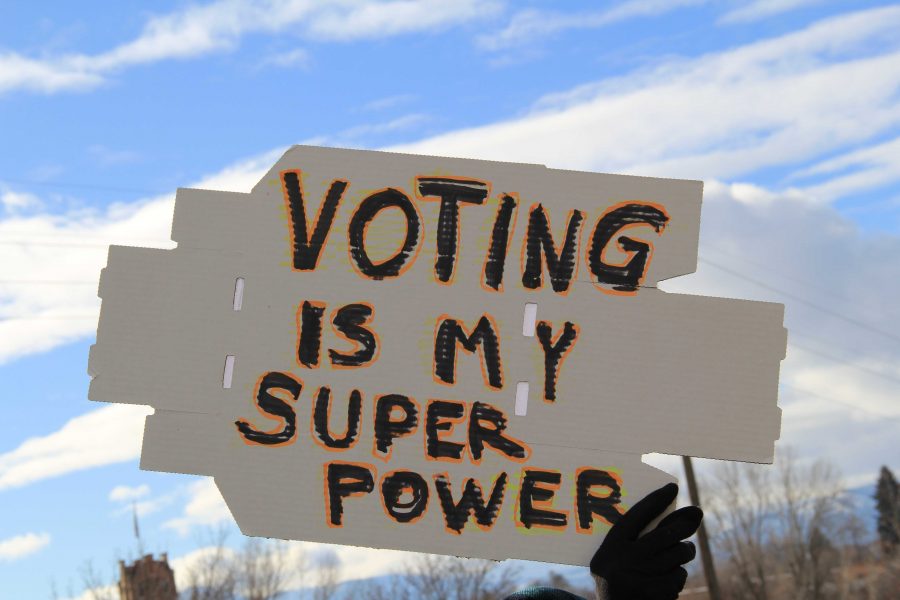As a political science major with a love for elections and passion for policy, I always get excited come November. I pester all my friends to register, to file their absentee ballot requests, to read up on the candidates. Inevitably, some of them brush off my enthusiasm: Elections don’t get decided by one vote; so if I don’t vote, it doesn’t matter. Sometimes I get the politically astute: I live in Chicago. We’re going to vote Democrat every time, no matter what I do. These are fair arguments, and I can’t fully rebut them. But their validity still doesn’t make your vote worthless.
I vote and stay engaged because it makes me feel connected to this country.
Any economics professor will tell you that if you’re only getting a benefit from voting if your vote decides the election (which happens quite rarely), then the cost of reading up on candidates and actually voting most likely exceeds that benefit. Therefore, the act of voting is a net negative. Any political science professor will tell you that Congressional districts are drawn in a way that decreases competition between parties. They’ll tell you that only a couple of states that could feasibly go for either party in any presidential election. And most Vandy kids aren’t from the upper Midwest, North Carolina or Florida. Nor are they from the few Congressional districts that changed hands to grant Democrats control of the House this year. People from Los Angeles and suburban Kentucky will likely be represented by the same party for the foreseeable future. Why should they vote? And doesn’t this logic extend to civic engagement in general, from going to protests to calling one’s Senators?
I understand that my actions won’t change the outcome of an election or the course of political history. But I do it anyway. I vote and stay engaged because it makes me feel connected to this country.
Much civic engagement can seem like a singular act. Casting one ballot. One person making a phone call. But that’s true of many other contributions to the American Experiment. When I pay my taxes, I know that the little money that goes to the government can’t build a hospital, fund a college grant or pave a road. If I didn’t pay taxes, that hospital would still get built, that grant would still be awarded and that road would still get paved. But I still pay my taxes and I don’t cut corners that would sneak by the IRS. I pay my taxes because I’m happy that I get to contribute, even in the smallest way, to that hospital, to that college grant and to that road.
Your civic engagement does not exist in a vacuum.
The same goes for any other patriotic act. I light fireworks on the Fourth of July not because my explosions will further light up an already bright sky, but because I get to celebrate the founding of this beautiful country. I go to protests not because my presence changes the nature of the demonstration, but because I like calling for change and asking my elected representatives to work for a better tomorrow. I stay up to date on the news not because my knowledge changes anything, but because I like knowing what my president, my senators and my representatives are doing–and it’s a privilege to be able to know these things. In some places, governmental institutions are not so transparent, protests are met with violence and there is little reason to be proud of the nation’s founding. It’s nice to live in a place where these things hold true.
Your civic engagement does not exist in a vacuum. Your excitement is contagious. If you called Republican Senators to oppose attempts to repeal the Affordable Care Act, your voice may have helped change their minds and scuttled the repeal attempt. If you knocked on doors for conservative candidates running in the 2018 elections, you buoyed conservative turnout. If you were animated about the midterms, about the prospect of challenging Trump’s agenda or furthering it, then your enthusiasm probably got some people on the fence to head to the polls. While you are only one voice in the chorus of millions, you can change how and whether other people sing.
I get it: voting doesn’t seem rational and civic engagement doesn’t feel like it changes much. The people in power aren’t beholden to one specific constituent. They’ll get reelected with or without me. Policies will be enacted whether or not I support them. Trump will remain in office whether or not I cast my New York absentee ballot in the midterms, talk about issues or go to a protest.
But I do these things anyway. Because doing them connects me to this country and the rights it protects. Because what I do influences others. Because collective action starts at the individual level.
Max Schulman is a sophomore in the College of Arts and Sciences. He can be reached at maxwell.r.schulman@vanderbilt.edu.



